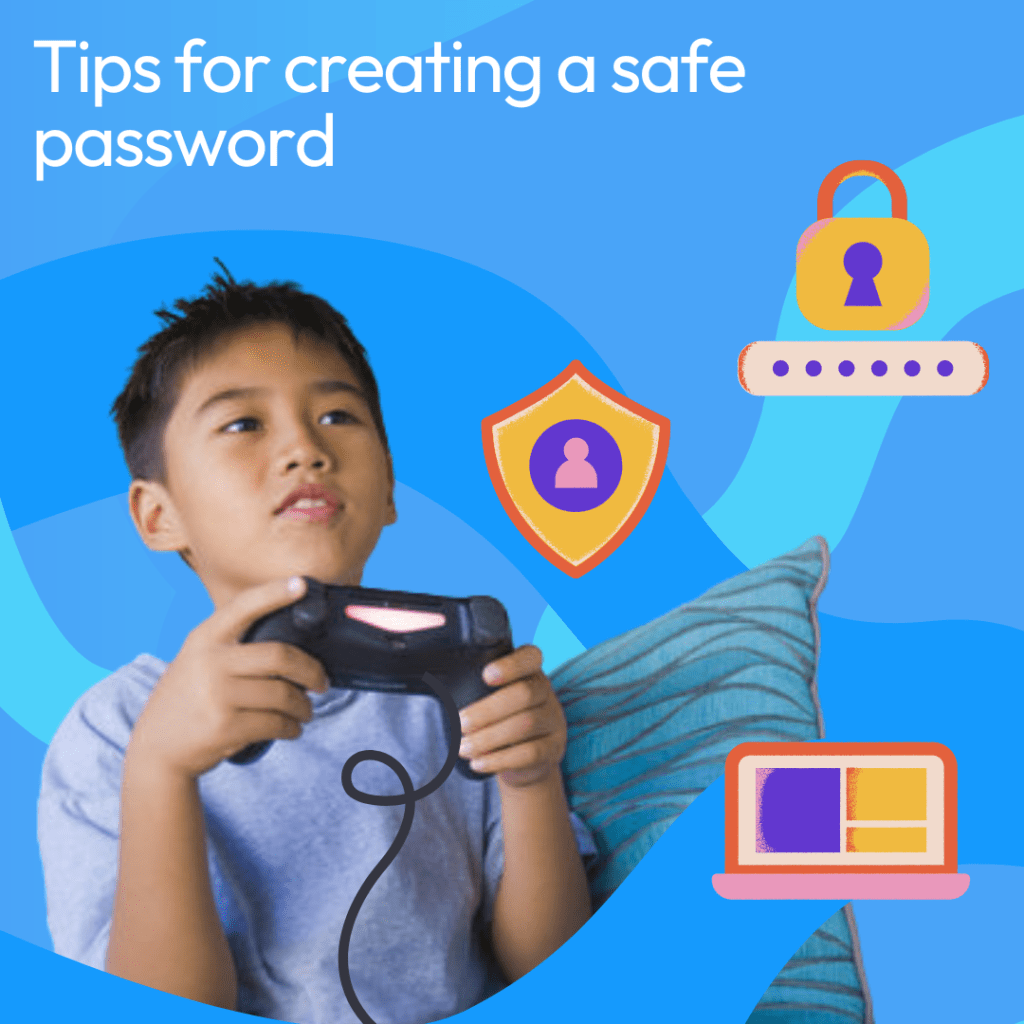In today’s digital age, online safety is paramount, especially for young gamers exploring the virtual realm. A critical aspect of safeguarding their digital presence is the creation of strong and secure passwords. As a parent, you play a pivotal role in guiding your child to craft passwords that deter cyber threats and protect their gaming and other accounts from unauthorized access. In this blog post, we’ll delve into the importance of strong passwords and provide a comprehensive guide on how to help your child create and manage them.
Why Strong Passwords Matter
Strong passwords are your first line of defense against cyber threats, including hackers, identity theft, and unauthorized access. Gaming accounts often contain valuable assets, personal information, and potentially payment methods, making them a prime target for malicious individuals. By instilling the habit of crafting robust passwords, you’re empowering your child to take control of their online security. Here are some tips to help you help your child to create strong passwords.

Longer is Stronger
Length is a fundamental factor in password strength. Encourage your child to create passwords that are at least 12 characters long. Longer passwords provide more possible combinations, making them significantly more challenging for attackers to crack.
Mix it Up: Use a Variety of Characters
Guide your child to mix different types of characters in their passwords. A strong password should include a combination of uppercase and lowercase letters, numbers, and special characters (such as !, @, #, $, %). This complexity adds another layer of difficulty for would-be hackers.
Avoid Dictionary Words
Steer your child away from using common dictionary words, as these can be easily guessed by attackers using automated tools. Even replacing letters with numbers (like “P@ssw0rd”) is predictable to many hacking programs. Encourage creativity in password creation.
No Personal Information
Make sure your child understands that their passwords should not contain personal information such as their name, birthday, pet’s name, or any easily discoverable details. Hackers can quickly gather such information from social media profiles or public sources.
Unique for Each Account
One-size-fits-all passwords are a recipe for disaster. Teach your child the importance of having a unique password for each gaming account. This way, if one account is compromised, the rest remain secure.
Passphrases: A Stronger Alternative
Introduce your child to the concept of passphrases, which are longer and more memorable sequences of words. For example, “BlueSky$RainyDay!” is more secure and easier to remember than a random jumble of characters.
Avoid Obvious Sequences
Advise against using sequential patterns or easily guessable combinations like “123456,” “qwerty,” or “abcdef.” These are among the first options attackers try.
Regularly Update Passwords
Emphasize the importance of regularly updating passwords. Set a routine—perhaps at the beginning of each month or semester—to change passwords. This reduces the risk of unauthorized access due to old or compromised credentials.
Use a Password Manager
For a multitude of accounts, it can be challenging to remember numerous strong passwords. Introduce your child to password managers—tools that securely store passwords and automatically fill them in when needed. This promotes both convenience and security.
The Art of Memorable Complexity
Creating a strong password doesn’t have to be a chore. Encourage your child to construct memorable yet complex phrases by combining favorite movie quotes, song lyrics, or personal sayings. For instance, “ToBe!OrNot2B#”
Conclusion
Empowering your child to create strong passwords is a vital step in their journey towards online safety. By instilling good password practices early on, you’re equipping them with a crucial skill that will serve them well beyond their gaming endeavors. Strong passwords act as an essential layer of protection against the ever-present threats in the digital world, ensuring that your child’s gaming accounts remain secure and their online experiences enjoyable.